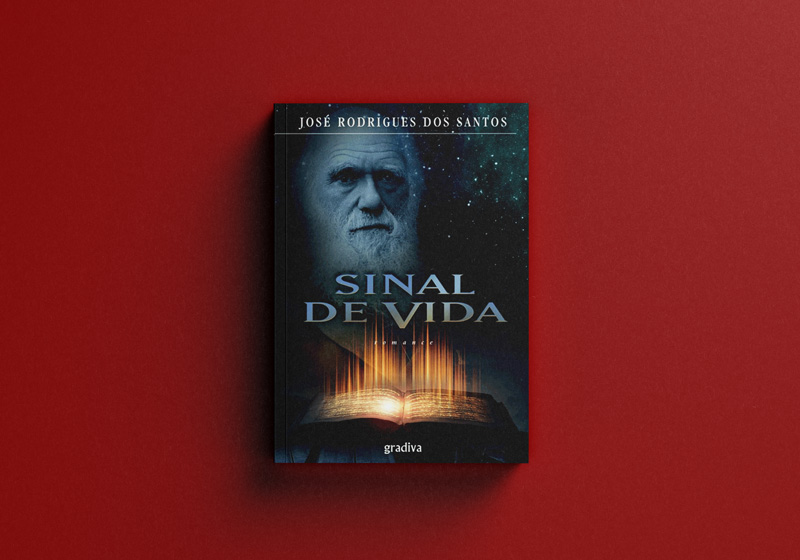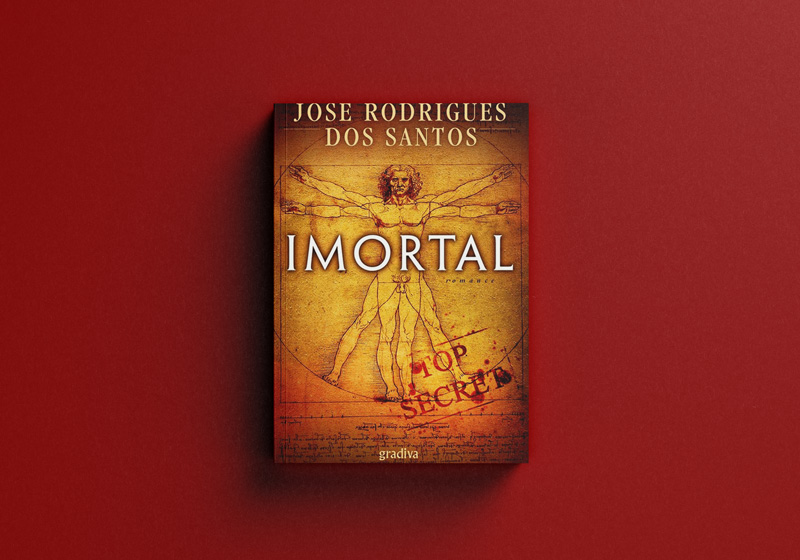Interviews Signal of Life for Visão
- It was only in your 18th novel that you reached outer space. Why had you not broached the subject before, considering your interest in science?
JRS: Outer space is not such an obvious subject, since my character, Tomás Noronha, is an historian. In fact, the idea to take him into outer space only occurred to me when I decided to write about life. Throughout my novels I have touched different fields of science, such as physics, mathematics, climate change… Now I thought there was a very interesting mystery surrounding life: how can inanimate matter become alive and conscious? This is a mystery. Matter suddenly starts to move with purpose and to think about itself. It’s a fascinating subject, with important philosophical ramifications. If life is just an accident, a mere act of chance, as it’s implicit in the Darwinian theory, then there is no purpose in the universe. It’s all an accident. But if life is spread throughout the universe, then it’s a cosmic imperative. No accident.
- That would mean there is intention, as if life is a part of a plan…
JRS: There’s a growing number of biologists who believe that life is indeed spread everywhere in the universe, including in our solar system. Some biologists think that there were two geneses on Earth and that life was found on Mars by the Vikings back in 1976. An experiment performed by the Vikings, the labelled release experiment, was clearly positive. NASA however did not dare to make the announcement that life had been found. On Earth, such an experiment would be considered absolutely conclusive, but since we were talking about Mars, NASA became nervous. Plus, there’s widespread belief that there’s life in the moons of Jupiter and Saturn, mainly in hydrothermal vents. Thus, if in our own solar system life has appeared several times, just imagine the whole universe. This means life is everywhere, it’s a part of the universe’s plan.
- Is this your view?
JRS: Yes. We are not talking about the God of the Bible or of the Quran. Nothing of the sort. But the universe seems to have a plan and life is a part of it.
- Have you created Tomás Noronha so he could be such a multidimensional character, able to perform so many different missions?
JRS: Absolutely not. Tomás Noronha was born in Codex 632 and was supposed to be a one novel character. Then, in the following novel, The Einstein Enigma, I needed an academic as the main character and I realized I already had one. Tomás. So I decided to use him again. Being an historian and a cryptanalyst makes him very versatile. He can deal with any subject of history, plus sciences, art, even the economy.
- So, it’s easy to insert him into all these subjects?
JRS: They are all adventures of knowledge. But there are novels, such as my historical novels, in which he doesn’t fit. For each of these novels I of course have to create a new set of characters.
- This book reminds me of Carl Sagan’s Contact. Was it a source of inspiration?
JRS: Perhaps there are some common points. I read Contact when I was a teenager. But the novel closer to mine is probably Arthur C. Clarke’s Rendez-vous With Rama. There’s also a recent movie, Life, which came out when I was revising my novel, that also shares some common points. The problem is that this is such an obvious subject that it becomes inevitable that you have different works of fiction tackling it. I wanted to deal with it in my own way, mixing fiction and non-fiction as I usually do, but in such a way that the reader clearly understands what is fiction and what is non fiction. That’s what’s new in my novel. Not necessarily the subject in itself, but how I deal with it.
- Your novels are very cinematic. Do you write thinking about movies?
JRS: Sure. I create movies in the minds of my readers. These are ambitious novels, major productions that each reader directs in his own mind. We have Tomás in the space shuttle, all the grandeur of a launching at Cape Kennedy, Times Square crowded in expectation, billboards saying I love ET, the Eiffel Tower beaming lights into the sky to welcome the visitors… it’s a grand story. This is not a small narrative about a person with some psychological problem. This is a major production.
- Global scale?
JRS: Exactly. Some people think literature is only about writing. It’s a legitimate view, but I don’t quite agree with it. For me, literature is about contents. Ian McEwan once told me: for me words must be transparent as water. I agree. I don’t want my readers to see the words, I want them to see what the words say. Words are a mere instrument that leads us to images, to content, to the story. That’s what I try to do.
- You certainly are a television man.
JRS: Being a television man, I write in a visual way.
- Do you write thinking about the readers you have?
JRS: Not only. I always try to reach out to new readers. My historical novels focus a lot on Portuguese history, such as the colonial war, the Portuguese corps in the First World War, the story of Calouste Gulbenkian, of the Salazar dictatorship… But the subjects of the Tomás Noronha novels are universal, they are of global interest. And I always try to come up with new ideas, I always try to innovate.



